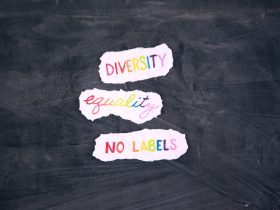Investments in equality solutions have gained significant attention in recent years as individuals and organizations seek to address social and economic disparities. While these investments can bring about positive change and contribute to a more equitable society, they also raise ethical dilemmas that must be navigated. In this article, we will explore the complexities of investing in equality solutions and guide how to approach these challenges.
Understanding the Context
Before delving into the ethical dilemmas surrounding investments in equality solutions, it is essential to understand the broader context. Inequities exist in various forms, such as gender, race, income, and access to opportunities. Addressing these disparities requires a multifaceted approach that combines policy changes, social initiatives, and financial investments.
The Power of Investments in Equality Solutions
Investments in equality solutions can play a crucial role in driving positive change. They provide financial resources to support initiatives that aim to reduce inequality and promote social justice. These investments can fund projects such as affordable housing, education programs, healthcare access, and workforce development. By leveraging financial resources, investors can contribute to building a more inclusive and equitable society.
The Ethical Dilemmas
While the intentions behind investment inequality solutions are noble, they can also present ethical dilemmas. Here are some of the key dilemmas that arise in this context:
Balancing Profit with Purpose
Investors often face the challenge of balancing financial returns with social impact. While investing in equality solutions may align with their values, they still expect a return on their investment. This dilemma requires careful consideration of the trade-offs between financial gain and the desired social outcomes. Investors must find a balance where they can make a profit while still making a meaningful difference.
Prioritizing Impact and Measurement
Measuring the impact of investments in equality solutions is complex. Investors need to determine how they will measure success and ensure that the intended social outcomes are achieved. This dilemma calls for robust impact measurement frameworks and continuous monitoring to ensure accountability. It is essential to establish clear goals and metrics that can effectively measure the impact of investments.
Avoiding Tokenism and Greenwashing
Investments in equality solutions must go beyond symbolic gestures. There is a risk of tokenism, where investments are made for the sake of appearance without creating meaningful change. Similarly, greenwashing, which refers to misleading claims of sustainability, can also occur. Investors must carefully vet opportunities to ensure genuine commitment to equality and social impact. They should prioritize investments that have a tangible and measurable impact on reducing inequality.
Addressing Systemic Issues
Investing in equality solutions requires addressing the root causes of inequality. This means tackling systemic issues such as discriminatory policies, lack of access to resources, and social biases. Investors must navigate the complexities of systemic change and consider long-term strategies to drive sustainable impact. It is not enough to address the symptoms of inequality; investors should actively engage in initiatives that challenge and change the structures that perpetuate inequality.
Ensuring Collaboration and Inclusion
Investing in equality solutions necessitates collaboration among various stakeholders, including communities, nonprofits, governments, and businesses. Building inclusive partnerships requires active engagement, listening to diverse perspectives, and prioritizing the needs of marginalized communities. This dilemma emphasizes the importance of fostering inclusive decision-making processes. Investors should actively seek out opportunities to collaborate with organizations and individuals who are directly impacted by the issues they aim to address.

Navigating Ethical Dilemmas
While ethical dilemmas may arise in investments in equality solutions, there are strategies to navigate these challenges effectively. Here are some recommendations:
Adopt a Triple Bottom Line Approach
Integrate the principles of the triple bottom line (people, planet, profit) into investment decisions. Focus not only on financial returns but also on social and environmental impact. This approach ensures a balanced consideration of all stakeholders’ interests. Investors should prioritize investments that align with their values and contribute positively to society.
Establish Clear Impact Goals and Metrics
Define clear impact goals and establish metrics to measure progress. Set specific targets for social outcomes and continuously track and evaluate the effectiveness of investments. This approach enables transparency and accountability in driving meaningful change. By setting measurable goals, investors can assess the effectiveness of their investments and make adjustments as needed.
Conduct Due Diligence and Impact Assessments
Thoroughly assess investment opportunities to ensure alignment with intended social impact goals. Consider the track record and reputation of organizations and projects. Conduct impact assessments to evaluate the potential positive and negative consequences of investments. This due diligence process helps investors make informed decisions and avoid investing in ventures that do not align with their ethical principles.
Engage in Active Ownership
Engage actively with invested companies and organizations to drive impact. Use shareholder activism to advocate for social and environmental change. Participate in stakeholder meetings, vote on resolutions, and collaborate with management to promote equality and social justice. This approach allows investors to use their influence to effect positive change within the companies they invest in.
Collaborate and Learn from Others
Investors should actively seek out partnerships and collaborations with organizations and individuals who have expertise in equality solutions. By learning from others’ experiences and best practices, investors can gain valuable insights and improve their approach to investing in equality. Engaging in dialogue and sharing knowledge can lead to innovative solutions and more effective strategies.
In conclusion, investing in equality solutions offers significant opportunities to create positive change and address social and economic disparities. However, it also presents ethical dilemmas that require careful navigation. By adopting a triple bottom line approach, setting clear impact goals, conducting due diligence, engaging in active ownership, and collaborating with others, investors can effectively navigate these dilemmas and contribute to a more equitable society.
Remember, the power of investments lies not only in financial returns but also in the potential to make a meaningful difference in the lives of individuals and communities. By investing with purpose and intention, we can create a future where equality and social justice are at the forefront of our financial decisions.

































